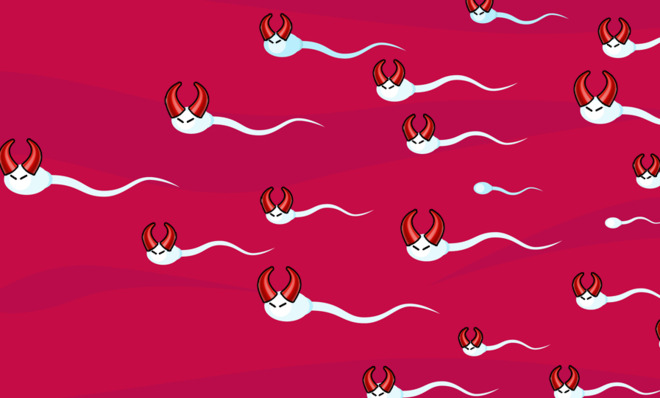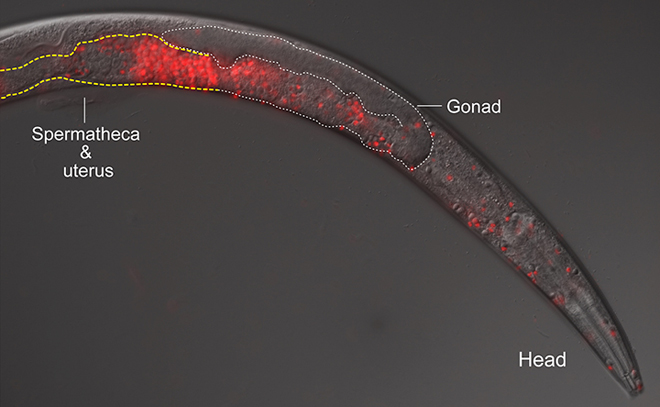This is why you don't have sex with other species
Some worms find interspecies mating to be a deadly affair

A free daily email with the biggest news stories of the day – and the best features from TheWeek.com
You are now subscribed
Your newsletter sign-up was successful
Say you're a horse, but you fancy a donkey: the worst thing that can happen is that reproduction isn't successful. A hinny or a mule might be your offspring, but they won't be able to make sperm or eggs and reproduce. For other animals, however, such interspecies sex can be tricky — even dangerous, if their genitals are too different. When some Carabus beetles try to mate with each other, for example, the genital mismatch can cause injury to both partners. And scientists just found that in certain nematodes, crossbreeding can be deadly.
The worms in question are species in the genus Caenorhabditis. Some of the species are dioecious and have males and females, while others are androdioecious and are made up of males and hermaphrodites, which can self-fertilize as well as breed with males. Thrown together in a lab by researchers from the U.S. and Canada, the different species mated "readily and promiscuously" with each other. Their bodies are also translucent, which gave the biologists a pretty clear view, literally, of what happens during and after mating.

Despite the worms' willingness to mate with each other, it often didn't work out well for them. When the researchers paired hermaphrodites and females with males from other species, they produced less offspring than if they self-fertilized or mated with males from their own species.
The Week
Escape your echo chamber. Get the facts behind the news, plus analysis from multiple perspectives.

Sign up for The Week's Free Newsletters
From our morning news briefing to a weekly Good News Newsletter, get the best of The Week delivered directly to your inbox.
From our morning news briefing to a weekly Good News Newsletter, get the best of The Week delivered directly to your inbox.
In some pairings, the results were much more extreme. When hermaphrodites from the species C. briggsae were matched with males from C. Nigoni, a single mating was enough to sterilize the hermaphrodites and shorten their lifespan.
To see what was happening, the researchers tagged the males' sperm with fluorescent dye and looked at the hermaphrodites under a microscope. What they found was an "invasion of sperm into the body cavity." The males' sperm broke free from their partners' sperm-storing organ, caused defects to the eggs and reproductive organs that left them sterile, then traveled around their bodies damaging tissue, eventually killing them.
The reason for the warpath, the researchers think, is that in that in some species, the females mate with multiple partners and the sperm need to be aggressive to compete with each other to fertilize the egg. Females from those species can handle the onslaught, but females (and hermaphrodites) from species with less active sperm aren't adapted to handle the aggressive cells. Given the worms' promiscuity and willingness to mate across species lines, the researchers think that the invasive sperm and the damage they cause act as a barrier to hybridization and keep the different species isolated. Unlike the genetic incompatibility of horses and donkeys, and the genital incompatibility of the Carabus, it's a barrier that imposes a much higher cost.
A free daily email with the biggest news stories of the day – and the best features from TheWeek.com
-
 Local elections 2026: where are they and who is expected to win?
Local elections 2026: where are they and who is expected to win?The Explainer Labour is braced for heavy losses and U-turn on postponing some council elections hasn’t helped the party’s prospects
-
 6 of the world’s most accessible destinations
6 of the world’s most accessible destinationsThe Week Recommends Experience all of Berlin, Singapore and Sydney
-
 How the FCC’s ‘equal time’ rule works
How the FCC’s ‘equal time’ rule worksIn the Spotlight The law is at the heart of the Colbert-CBS conflict